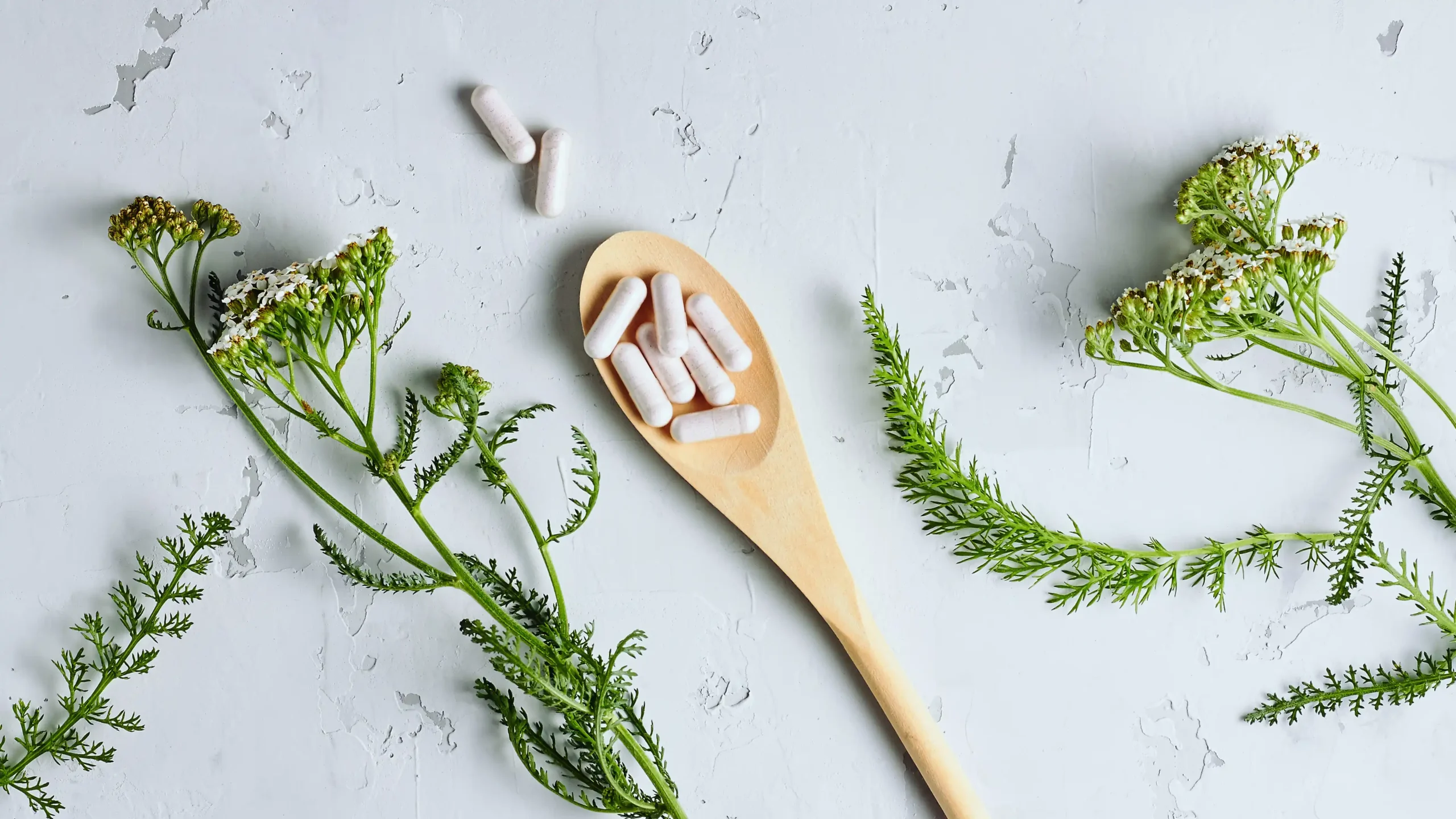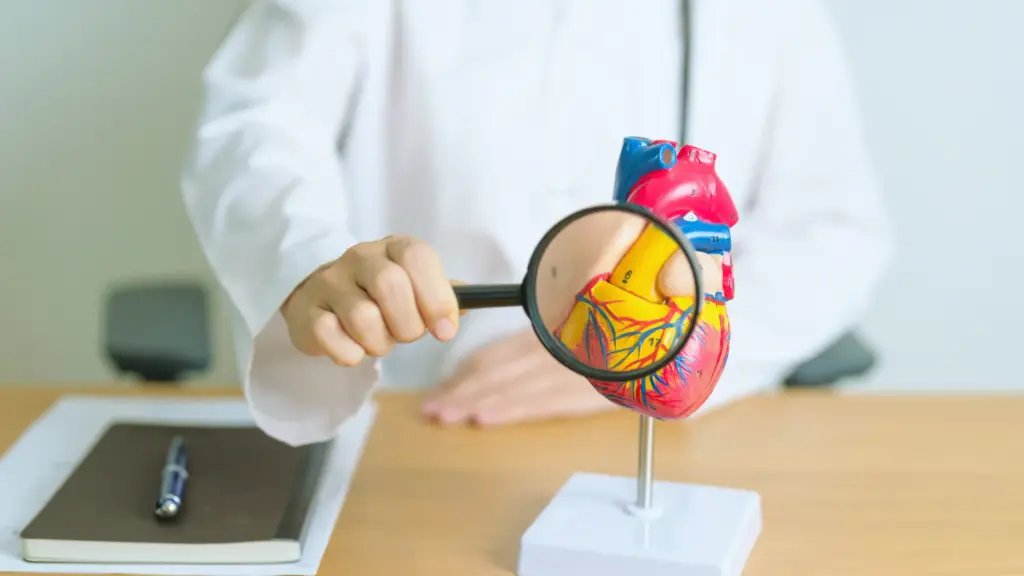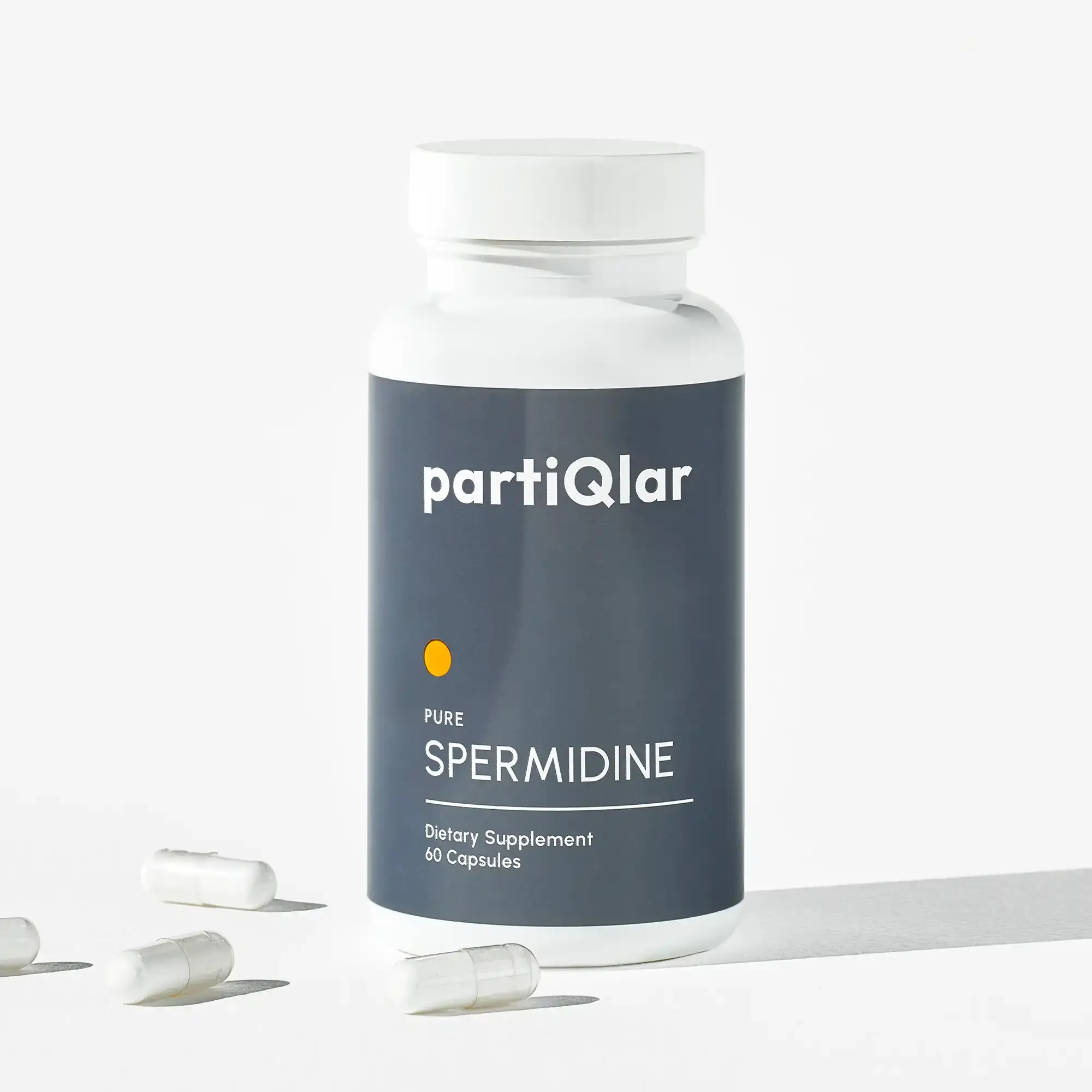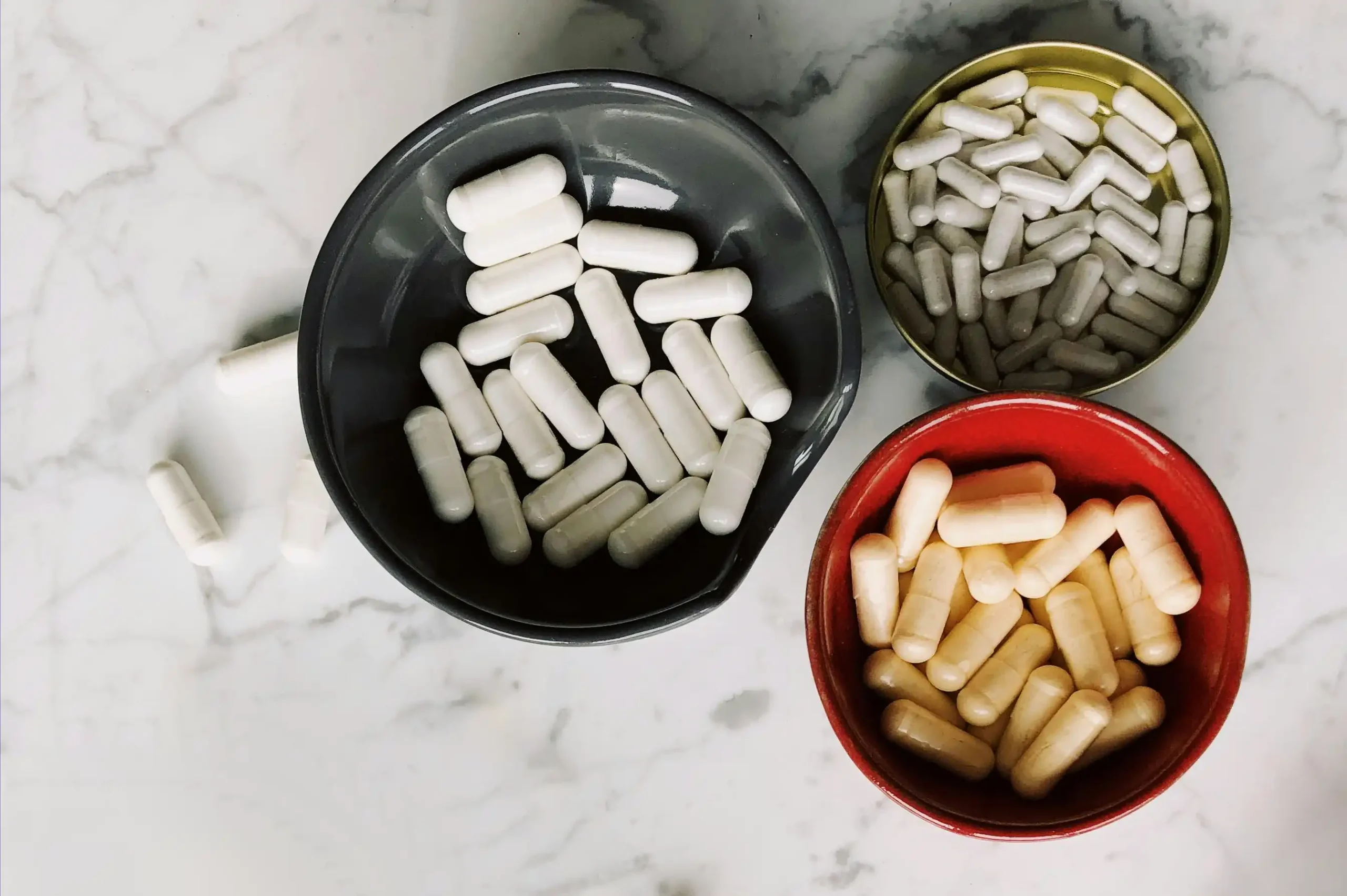Calcium alpha-ketoglutarate (Ca-AKG) is a stabilized form of alpha-ketoglutarate linked to increased bioavailability and longevity benefits observed in animal studies. Potential advantages include improved healthy aging, reduced frailty, enhanced muscle recovery, cognitive support, and even grey hair improvement.
All Things Spermidine – Your New Favorite Supplement to Fight Aging
- Lifestyle
- October 17, 2024
- Robert U. partiQlar

Related Product
Unlock your body’s natural renewal with spermidine. Learn how this powerful supplement mimics fasting to boost health, support memory, and fight aging.
Discover Spermidine: The Autophagy-Boosting, Age-Reversing Compound
Curious about how your body cleans up old cells and recycles defective cellular components to stay healthy? Here comes autophagy.
Imagine tiny nanobots inside your cells, hunting down and breaking apart damaged molecules, then recycling them into new, healthy parts—sounds like science fiction, but that is essentially what happens during autophagy. Autophagy is one of our body’s built-in repair systems and it’s a way of cleaning out cellular debris and renewing itself. Having a highly functional autophagy system is essential to achieving a youthful cell state.
While autophagy happens all the time, a well-fed lifestyle does not maximize the potential of autophagy. One of the best ways to boost autophagy is through fasting. However, although fasting is an effective autophagy-inducer, it is challenging for a lot of people.
Enter Spermidine, a compound that’s been making waves in the health and longevity field. It’s shown to be a potent activator of autophagy, making it a turbocharger for our body’s self-repair process. Unfortunately, our spermidine levels decline with age, but studies show that spermidine supplementation may prevent or delay the onset of age-related diseases.
In this article, we’ll dive deep into the science behind spermidine and explore how it can help you unlock a longer, healthier life.

Spermidine - Key Takeaways:
- Spermidine is a powerful activator of autophagy, the body’s cellular cleaning and renewal process, which is crucial for maintaining youthful cells and overall health.
- Spermidine mimics the health benefits of fasting without the need for actual fasting or calorie restriction, making it an accessible option for enhancing cellular repair and longevity.
- Regular intake of spermidine, whether through food or supplementation, may have diverse health benefits, including longevity, cognition, heart health, immune function, as well as hair health.
- Natural spermidine foods include wheat germ, aged cheeses, fermented soybeans, whole grains, legumes, broccoli, cauliflower, and mushrooms, among others. For higher intake, pure spermidine capsules are commonly available in 5-10 mg doses.
What is Spermidine?
Spermidine is a naturally occurring polyamine compound found in all living organisms, playing a vital role in various cellular and metabolic functions. It is involved in processes such as cell growth, proliferation, and the stabilization of cellular structures like our genetic material, DNA, and RNA. Now, it is well-known for its key role in promoting autophagy, promoting our internal repair and recycling process that clears out damaged cells and parts, and regenerates new ones.
Originally isolated from semen (hence its name), spermidine’s levels naturally decline with age, which has spurred interest in dietary supplementation to support healthy aging. Although research into spermidine’s various benefits is ongoing, current studies suggest its potential to improve cardiovascular health, support cognitive function, and enhance lifespan.
Spermidine Benefits
If you’re into supplements with multifunctional properties for a broad range of protection, you’d love spermidine. Spermidine has garnered significant interest in the health and wellness community due to its potential range of benefits.
Spermidine supplementation offers the following potential key health benefits:
- Activates Autophagy – Spermidine is a potent inducer of autophagy, a cellular cleaning process that removes damaged cells and proteins. This process is linked to improved cellular health and longevity¹.
- Mimics Fasting Effects – Fasting (not eating during a specific period) and caloric restriction (reduced eating in a day) both activate autophagy. However, restricting food intake is very challenging for many people. One of the most exciting aspects of spermidine is its ability to mimic the benefits of fasting without the need for food restriction to activate autophagy, promote cellular repair, and improve metabolic health².
- Enhances Cognition – A 2022 clinical trial supports that spermidine-rich wheat germ extract may support brain health, memory, and cognitive function by reducing oxidative stress and inflammation³.
- Induces Cardioprotection – Emerging research indicates that spermidine might play a role in maintaining heart health by reducing blood pressure and inflammation. In mice, spermidine may rescue an aging heart⁴.
- Supports Immune Function – Spermidine rejuvenates the function of old immune cells and restores immune surveillance against infection and cancer⁵.
- Stimulates Hair Health – While more research is needed, anecdotal evidence suggests that spermidine may promote hair growth and reduce graying of hair⁶.
- Promotes Longevity – Spermidine can reverse various hallmarks of aging and may contribute to a youthful appearance and overall well-being⁷.

How does Spermidine work?
Spermidine works by stimulating autophagy⁸. As cells are like busy factories that are operational every day, wastes and dysfunctional parts accumulate over time. Autophagy is its way of housekeeping, getting rid of the old junk to make room for new and better parts. This rejuvenation process is thought to contribute to spermidine’s anti-aging properties through the activation of specific proteins that enable cells to clean house and regenerate.
As we age, this cellular cleaning process slows down, but spermidine supplementation can help accelerate it, particularly in metabolically active organs like the liver, heart, and muscles.
Additionally, spermidine exerts anti-inflammatory effects by neutralizing harmful reactive oxygen species (ROS), reducing the uncontrolled release of pro-inflammatory molecules, and dampening overactivated, dysfunctional immune cells that do more harm than good. By suppressing chronic inflammation, spermidine may delay or prevent aging-related disorders.
Spermidine and Longevity
Spermidine’s anti-aging potential is no longer a secret, but you might be wondering how effective it is in promoting a longer, healthier lifespan. Well, spermidine does an excellent job in autophagy, cell renewal, and even fighting telomere shortening, but does it translate to a longer life? Current findings say yes!
The shortening of telomeres (protective caps at the end of chromosomes that shorten over time) is a critical factor that contributes to aging. Interestingly, studies suggest that spermidine may help maintain telomere length and potentially slow down the aging process⁹.
As a potent activator of autophagy, spermidine triggers the cellular cleaning process essential for removing damaged components and promoting cellular renewal. This process is consistently linked to a reduced risk of age-related diseases, improved overall health outcomes, and lower mortality.
Based on a 2018 clinical trial with 829 participants aged 45-84 years, published by The American Journal of Clinical Nutrition¹⁰, spermidine-rich nutrition is linked to lower mortality and increased survival in humans. According to the researchers, higher spermidine intake was associated with a lower risk of death from all major causes, similar to the effect of being 5.7 years younger. Since this improvement can already be observed in spermidine-rich nutrition, it wouldn’t be surprising if spermidine capsules at specific dosages result in better outcomes.
Various animal experimental studies also demonstrated that spermidine exposure increases the lifespans of yeast, nematodes, flies, and mice. In mice at the age of 4 or 18 months, spermidine exposure led to an outstanding 10% increase in median survival¹¹.
With all these data, larger clinical trial testing of the best spermidine supplements is warranted, and it is definitely something the whole longevity community is looking forward towards.
Spermidine and Cognition
If you feel like you’re not as sharp as you used to be, or that your memory is slipping, don’t worry – you are not alone. Cognitive impairment is a common concern as we age, affecting millions worldwide. While often considered an inevitable part of aging, it might not be as unavoidable as once thought.
Spermidine may offer a promising approach to mitigating the onset and progression of cognitive decline. In the aging brain that is exacerbated by buildups of cellular wastes and damaged proteins, autophagy can be particularly helpful against the development of neurodegeneration and cognitive decline.
Indeed, findings from a 2018 human clinical trial¹² revealed that a 3-month spermidine-rich plant extract supplementation may improve memory performance in older adults with subjective cognitive decline at risk for dementia.
In aged animal models¹³, spermidine supplementation also shows protection against neurodegeneration and cognitive decline.
These results underscore the promising neuroprotective potential of spermidine for cognitive health and its potential as a safeguard against the development of neurodegenerative disorders.

Spermidine Usage
The optimal spermidine dosage and timing is not yet established, but it’s generally recommended to take spermidine supplements consistently for noticeable effects.
How much Spermidine to take per day?
In human clinical trials, daily doses of 6-15 mg of spermidine have been tested¹⁴ as potentially safe and well-tolerated. But there are several dosages in the market.
It’s smart to start at a low dose in the 5-10 mg range to see how it would react on you, and then just gradually increase to the recommended doses after adjusting.
If you did not experience side effects or issues at the start, a 10-20 mg dose range is also available.
Note that dosing may vary from person to person, so make sure to consult your doctor for your own needs. For example, the spermidine dosage that David Sinclair takes is 1 mg per day, taken in the morning.
How long does it take Spermidine to work?
The time it takes spermidine to work can vary depending on the individual and the specific health goals. Generally, it might take a few weeks to several months to work.
Spermidine works molecularly, and the benefits are not immediate (typically not noticeable). It does not give instant effects, as it works towards your long-term health goals. With consistent use, you may eventually feel an improvement in areas like cognitive function, skin health, or overall vitality. And if you’re in for its anti-aging potential, consistency is key to seeing the positive effects. If you really want to check, try some commercial biological age tests after several months of consistent use.
Recommendation of Spermidine for sleep?
If you’re curious if spermidine could help with sleep, limited data hints at a possible connection to sleep quality; however, it’s still in its infancy. Human data and the exact molecular mechanisms are still under investigation.
Suggested combination for sleep
Since the evidence supporting spermidine as a sleep aid is limited, you may consider combining Spermidine with Apigenin which is known for sleep-promoting effects. This combination might offer a synergistic approach to promoting better sleep and overall relaxation. When taking Apigenin-containing supplements for sleep, it is often recommended to have it about an hour before bedtime for a more restful sleep.
Spermidine Natural Food Sources
Now that you’re more informed about the amazing benefits of spermidine in health and longevity, you might wonder – what foods contain the most spermidine? Well, the answer is that the exact spermidine content can vary, but wheat germ, aged cheeses, and fermented soybeans tend to be among the richest dietary spermidine sources.
- Foods Containing Spermidine: Some of the best dietary sources of spermidine include aged cheeses, fermented soybeans (natto), wheat and whole grains, legumes, broccoli and cauliflower, mushrooms, peas, and chicken. Spermidine content in these foods can vary.
- Increasing Spermidine Naturally: To increase your spermidine intake naturally, focus on consuming a diverse range of spermidine foods or rich whole foods rich in spermidine. Incorporating fermented foods into your diet can also be beneficial, as fermentation processes often increase the spermidine content.
Note though that the amount of spermidine naturally found in food is relatively low. Therefore, pure spermidine supplements are often considered to increase intake significantly.

Spermidine Overview - Final Thoughts
As a multitasking molecule, spermidine supports our cells in various ways. Specifically, it plays a crucial role in boosting autophagy, taming inflammation, promoting cell renewal, and combatting telomere shortening. These molecular actions promote having more efficient cellular machinery because of renewed/repaired cellular parts, allowing your cells to perform at their peak.
So, if you want to remain youthful or reverse cellular aging, take advantage of autophagy! Let spermidine be your best partner to harness a broad range of health protection and potential lifespan extension in long-term use.
FAQ - Spermidine
Q1: Does spermidine increase lifespan?
Spermidine has been shown to increase lifespan in various model organisms, including yeast, flies, and mice. It promotes autophagy, a cellular recycling process, which helps remove damaged cellular components, thus improving cellular health and longevity. However, more research is needed to confirm its effects on human lifespan.
Q2: How long does it take spermidine to work?
The duration required to experience the benefits of spermidine can vary from person to person. Factors such as age, overall health, and the specific goal of supplementation can influence the timeline. It’s essential to maintain consistent use to allow the body sufficient time to adapt and reap the potential rewards.
Q3: Best time to take spermidine
There’s no definitive “best time” to take spermidine. Some people prefer taking it in the morning to kickstart their day, while others find it beneficial to take it before bed to support nighttime cellular repair. The exact timing of intake might vary depending on individual preferences and lifestyle, or as recommended by your healthcare provider.
Q4: What food contains the most spermidine?
The food highest in spermidine is wheat germ, which contains about 243 mg/kg. Other rich sources include aged cheeses, fermented soybeans (natto), wheat and whole grains, legumes, broccoli and cauliflower, mushrooms, peas, and chicken. Consuming these foods can boost spermidine intake.
Q5: What does spermidine do for the body?
Spermidine plays a vital role in various cellular functions. It promotes autophagy throughout the body wherein it triggers the clearing of damaged cells and recycling of cellular components. This contributes to cellular renewal, reduces oxidative stress, and fights telomere shortening. Spermidine’s effects are linked to improved overall health and potential lifespan extension.
Explore Products
Related Articles
TMG (trimethylglycine) supports heart health and longevity by lowering homocysteine levels and enhancing athletic performance. Learn how this compound can boost well-being.
Uncover the longevity secrets of centenarians, highlighting common habits that contribute to their long lives. Learn about diet, exercise, social connections, and more to inspire your own journey toward a healthier, longer life.



